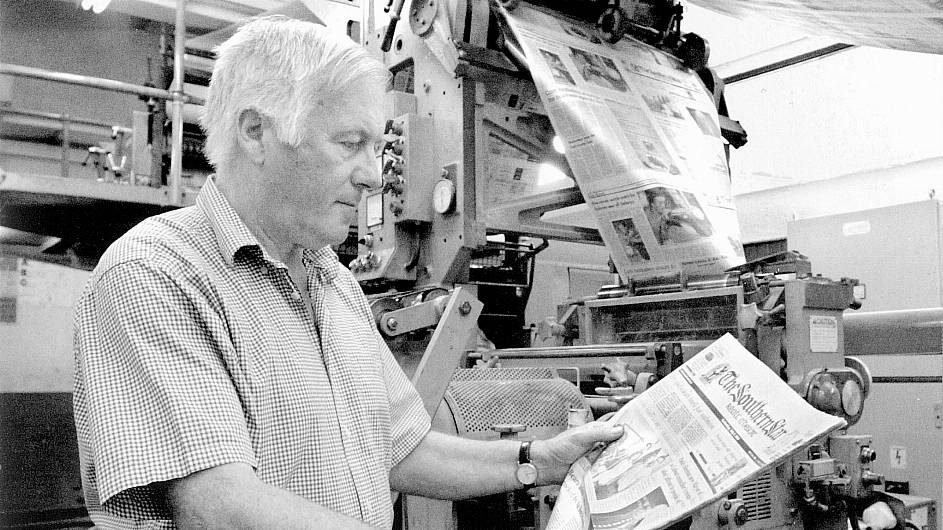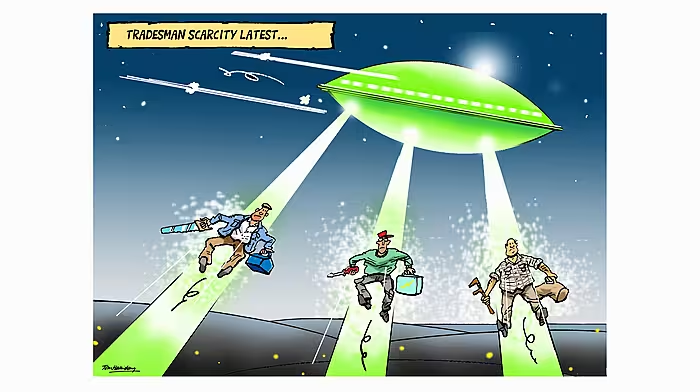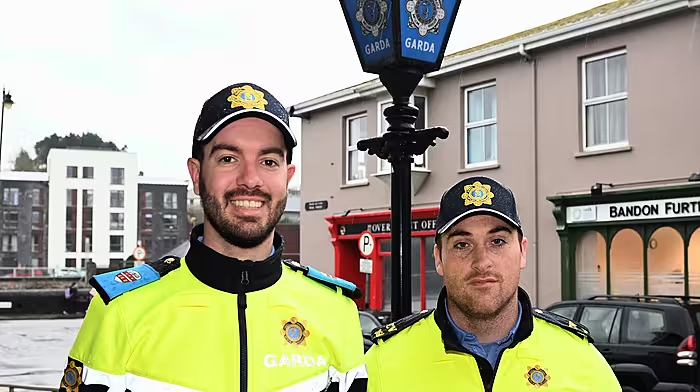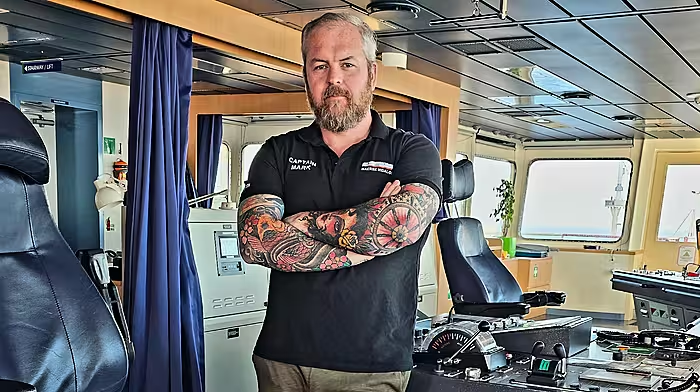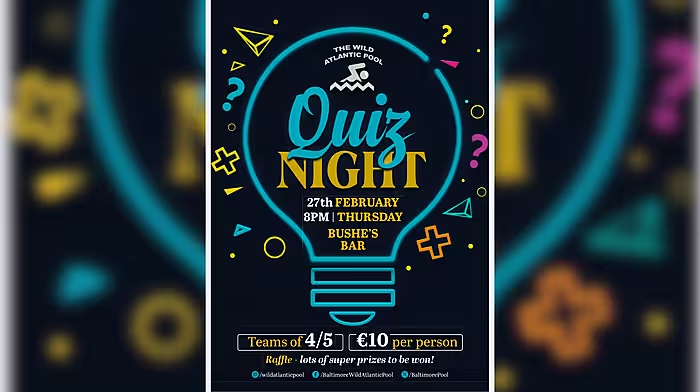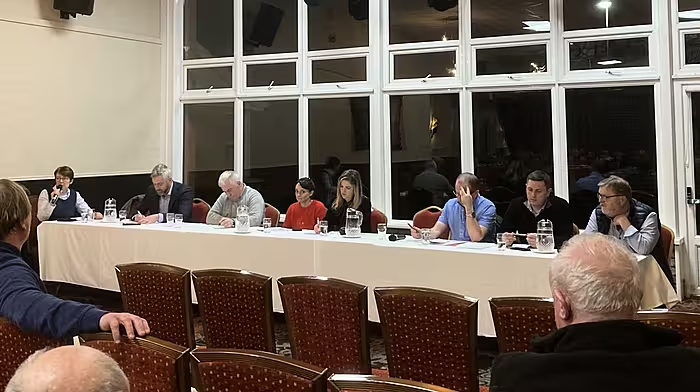Technology may have replaced the ‘scribbles’ written on the back of cigarette boxes – but regardless of how it’s delivered, local news is still as valuable as ever, writes our Clonakilty notes contributor
BY CIONNAITH Ó SÚILLEABHÁIN
ALL my life The Southern Star has been part of the week in my parents’ and grandparents’ homes. I grew up reading it from a young age. Around 1989/1990, I became PRO of a couple of local organisations. The most important thing in those roles was to make sure to get items into the ‘Clon Notes’ page.
I would handwrite out the information and deliver to the then correspondent’s house, the late Conchubhair Ó Ruairc, who happened to have been my sixth class teacher in the late 1970s. I’d go to his house on Michael Collins Road, ring the bell and if he answered, hand him my notes and we’d exchange a cúpla focail as Gaeilge.
If there was no answer, I’d drop them in through the letterbox. They always appeared in print.
Sadly, Concubhair passed away. Tom Lyons, (still writing GAA reports every week), became the (temporary) replacement. Items now were dropped in for him at O’Donovan’s Hotel reception, if I recall correctly.
Around March/April 1994, there was a notice on the Clon page looking for a new local correspondent. Submit a sample article and post to the editor, it said!
I decided to take a chance but heard nothing back for many weeks from the late Liam O’Regan, then editor. I forgot about it.
That June, there were local UDC (town council) elections, and I was nominated to contest them.
I was elected, and the following week, a letter arrived from Liam, offering me the Clon Correspondent position. He apologised for the delay in replying, but explained he didn’t want to announce anything during the election campaign, which was fair enough.
And so it began.
I gave him a call to say I’d be happy to try it out for a while and he gave me some pointers.
 Cionnaith Ó Súilleabháin was hired by former Star editor and owner Liam O'Regan in 1994.
Cionnaith Ó Súilleabháin was hired by former Star editor and owner Liam O'Regan in 1994.
In June 1994, there was no internet, no mobile phone and I had no computer – but neither had anyone else!
The process for me was as follows: go to the reception desk of O’Donovan’s Hotel on Mondays around 5pm after work (my job back then was gardener/caretaker at the local Convent of Mercy).
I would be handed a bunch of envelopes by the receptionist – with loose bits of paper inside, such as open and folded flat cigarette boxes with writing on them!
A very occasional photo also was waiting – it had to be black and white! These were the items handed in during the week from people who wanted them included on the Clon Notes that week.
The deadline was 5pm but I always waited until around 5.15 for the usual late people.
I then went home to Rossmore, seven miles out of town where I lived at the time, and had my dinner.
Next, I opened up the envelopes and flattened out the enclosed pages, scraps of paper, and other items, with writing on them. For upcoming items, I’d put them in chronological order as the respective events were to happen, and stapled them together on the top left hand corner.
The reports of things already after happening were put at the back of the bundle. (I still use this method in a way today – on my Word doc on the computer!). I had an electric typewriter, and I’d then write any additional items about things I might have attended myself during the past week, or anything upcoming that I knew about.
When finished, I might have two to three A4 pages, which I’d then fold neatly in half, typing faced inwards, and I’d slip the various handwritten notes received and filed in order earlier, into the centre, and press down on table to extract any air!
Then, into an A5 envelope, and write ‘Editor, Southern Star, Ilen St, Skibbereen, Co Cork’ on the outside.
A strip of Sellotape, along the two ‘glued’ flaps (in case the important contents would fall out if the glue got damp and seals opened), on with a stamp and into Clon to post at the post office – no other postbox would do – as they would all have been collected by 5.45pm on a Monday evening.
Once my envelope was in the post office’s postbox by 5.30am on a Tuesday morning, it would be in Skibb before 9am.
This mission often happened at 2am or 3am – or even later on some occasions! The guards stopped me a few times suspecting I was indulging in late night drinking in some pub.
On a few occasions, when the Tuesday was a bank holiday, like a Patrick’s Day, and there was no postal service, I drove to The Star office late on a Monday night and put the envelope through the Ilen St letterbox.
After a year or so, I bought a fancy (home) phone which also had a fax (and built in answering machine) function.
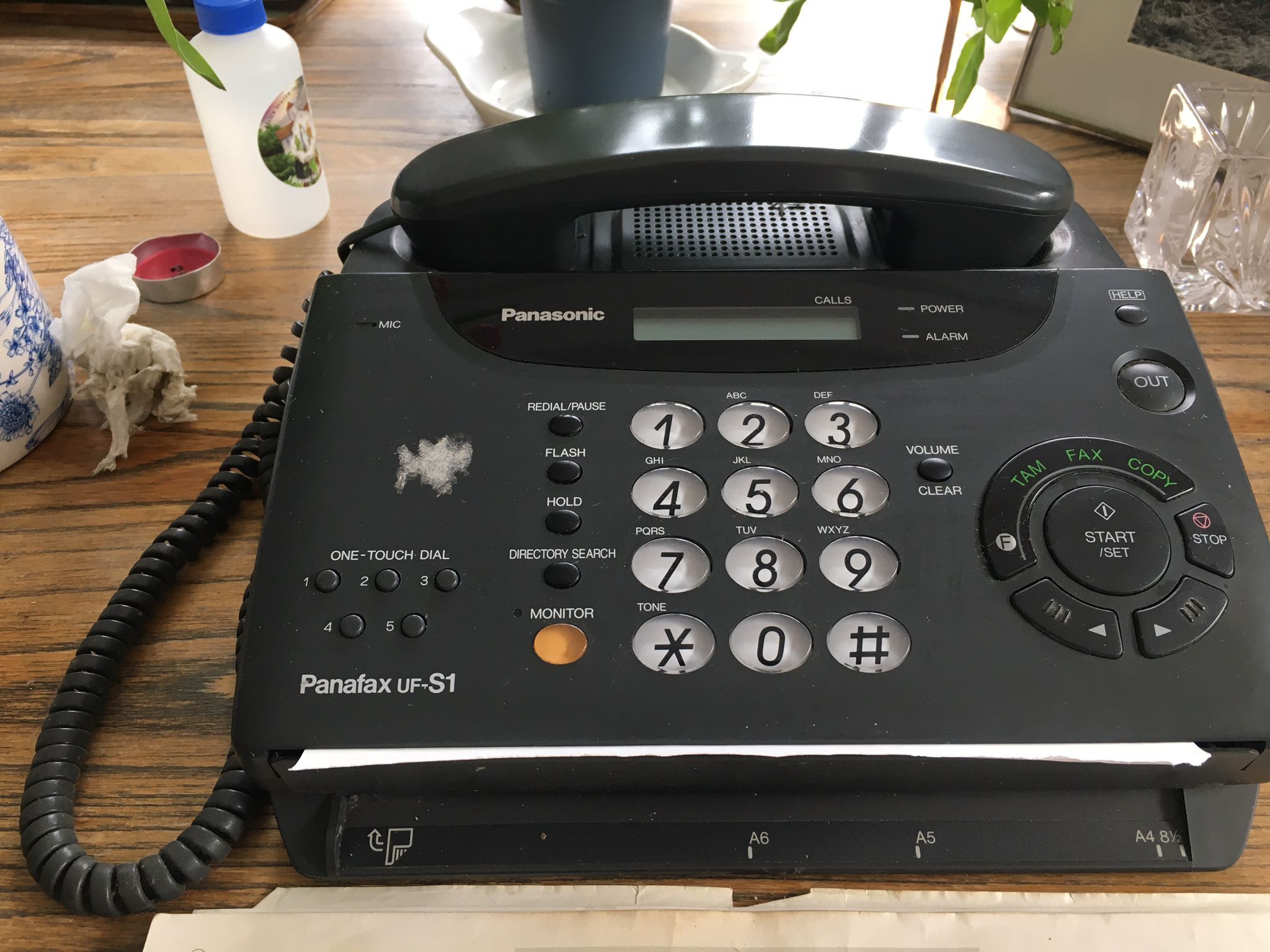 The famous fax machine!
The famous fax machine!
I now changed my system slightly and posted the handwritten items received in the post office on my way home from work, typed up my own stuff as usual on the typewriter, but now faxed the pages, instead of driving back into town at all hours to the post office.
As a correspondent, I’d also be asked to attend things and to organise a photographer. Walter Coleman, RIP, lived up McCurtain Hill, was a professional photographer, and developed his own films in his bathroom. I would often ring him and he’d almost always attend events and would drop black and white photos accompanied by neat handwritten captions to the hotel reception for my Monday pick-up deadline.
Around the end of the 1990s I invested in a computer and printer. A big bulky white monitor on the table and the ‘tower’ underneath with wires and cables all over the place.
Then this new invention called the internet arrived – and email! I invested. It had a buzzing dial tone to connect and I made sure to log off to keep the phone bill down.
Technology became popular with everyone and I encouraged people to start emailing items if they could.
In the last 15 years or so, the handwritten items have disappeared. There’s no collecting them from O’Donovan’s Hotel. Photos can also be emailed and the weekly deadline has been extended to 9pm on Mondays.
Now emails are sent from phones and these days, of course, everyone is a photographer – of varying standards!
WiFi is all around and there’s no need of phone wires.
It’s all a far cry from illegible scribbles on the back of fag boxes, envelopes, beer mats, and even used Christmas cards! It’s a far cry from driving to the post office on cold frosty nights.
But one thing has not changed in all that time – the local news is still as important as ever.

